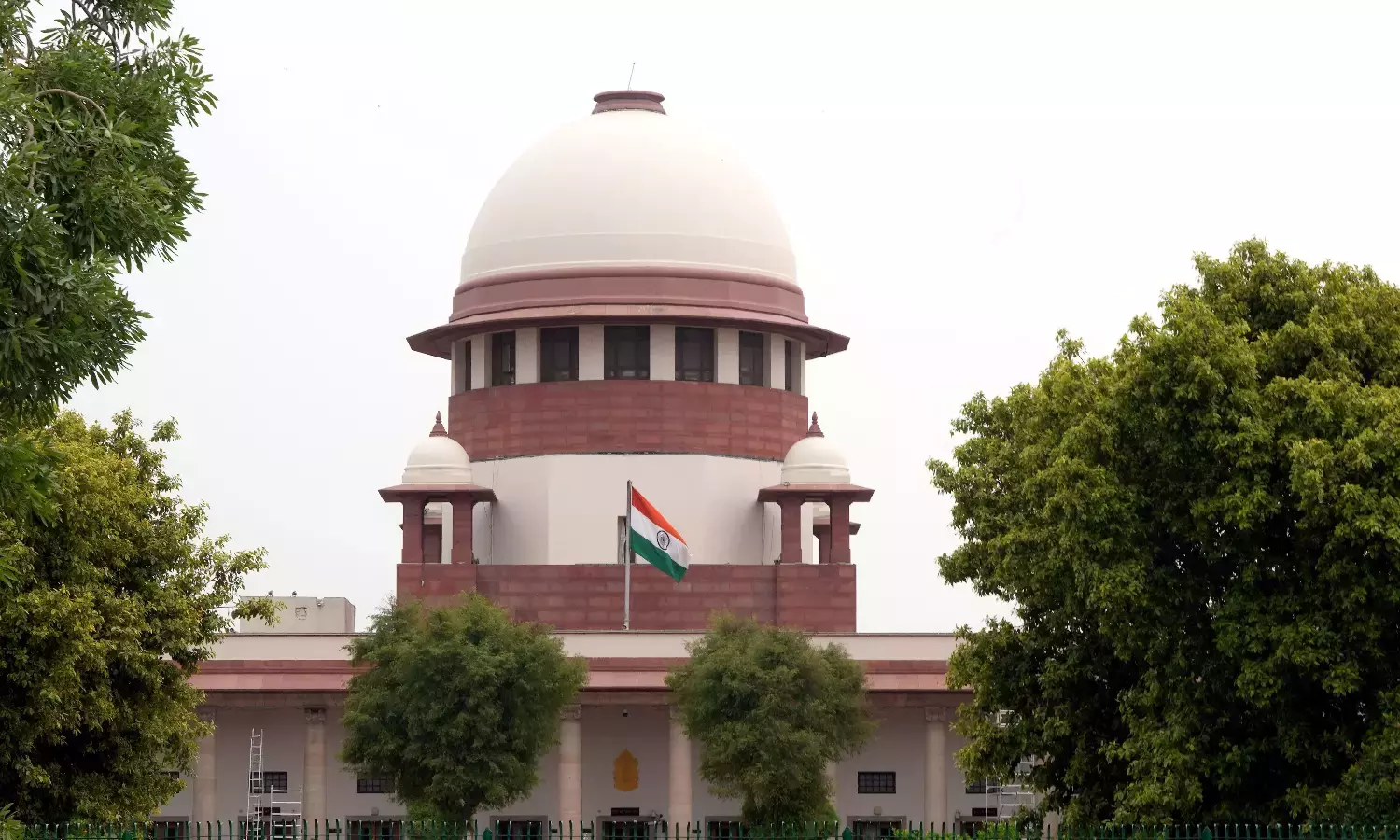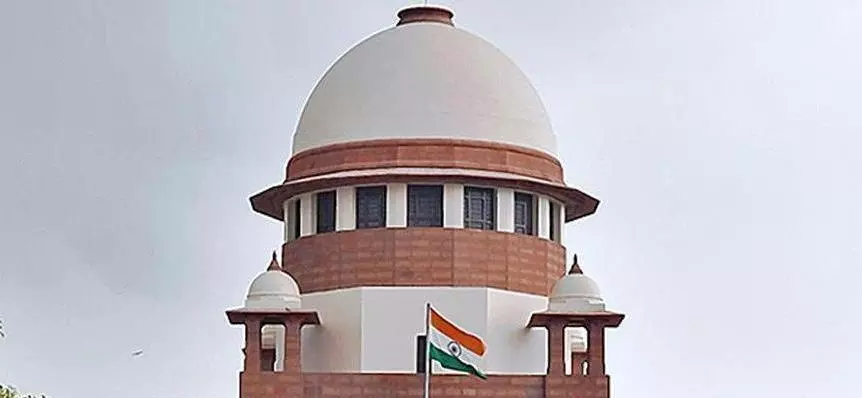
SC issues notice to Centre, States over petition challenging Waqf Act, 1995
text_fieldsNew Delhi: The Supreme Court on Tuesday issued a notice to the Centre and state governments regarding a petition challenging multiple provisions of the Waqf Act, 1995.
At the outset, a bench led by Chief Justice of India (CJI) B.R. Gavai signalled that the petition, which contests the constitutional validity of the Act, could be dismissed solely due to the delay in filing.
“We will dismiss on the grounds of delay. You are challenging the 1995 Act in 2025. Why should a challenge to the 1995 Act be entertained in 2025?” questioned the Bench, also comprising Justice A.G. Masih.
In response, the petitioner’s counsel cited the notice issued in 2021 by the top court on a plea challenging the validity of the Places of Worship Act, 1991. Further, he contended that the plea questioned the constitutional validity of the Waqf Act, 1995, including the Waqf (Amendment) Act, 2013, and the Waqf (Amendment) Act, 2025.
Additional Solicitor General (ASG) Aishwarya Bhati, representing the Centre, stated that there should be no issue in tagging the present petition with the existing batch of pleas challenging the Waqf Act, 1995.
ASG Bhati further noted that the Supreme Court had already clarified that it would not consider challenges to the 1995 Act alongside the pleas contesting the validity of the recently enacted Waqf (Amendment) Act, 2025.
After reviewing the submissions, the Bench led by Chief Justice of India (CJI) B.R. Gavai issued notice to the Centre and state governments, tagging the matter with the pending petitions challenging the Waqf Act, 1995.
The plea filed before the apex court contended that the Waqf Act, 1995, is against Articles 14, 15, 21, 25, 26, 27 and 300A of the Constitution, and therefore, it must be “abrogated, and a secular law should be enacted in the spirit of the constitutional principles of equity, justice and good conscience”.
“The Act is made to administer the properties of Muslims, but there are no similar laws for followers of Hinduism, Buddhism, Jainism, Sikhism, Judaism, Bahaism, Zoroastrianism and Christianity. Hence, it is totally against the secularism, unity and integrity of the nation. Waqf is not mentioned anywhere in the Constitution,” the plea said.
It added that if the impugned act has been made to protect the fundamental rights guaranteed under Articles 29 and 30, then the law has to cover all minorities, i.e., followers of Jainism, Buddhism, Sikhism, Judaism, Bahaism, Zoroastrianism, and Christianity, and not only Muslims.
(inputs from IANS)
























